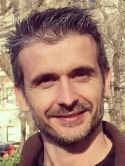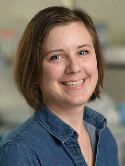Generation of human embryonic stem cell models to exploit the EWSR1-CREB fusion promiscuity as a common pathway of transformation in human tumors Journal Article
| Authors: | Vanoli, F.; Meskauskaite, B.; Herviou, L.; Mallen, W.; Sung, Y. S.; Fujisawa, Y.; Zhang, L.; Simon, S.; Huangfu, D.; Jasin, M.; Antonescu, C. R. |
| Article Title: | Generation of human embryonic stem cell models to exploit the EWSR1-CREB fusion promiscuity as a common pathway of transformation in human tumors |
| Abstract: | Chromosomal translocations constitute driver mutations in solid tumors and leukemias. The mechanisms of how related or even identical gene fusions drive the pathogenesis of various tumor types remain elusive. One remarkable example is the presence of EWSR1 fusions with CREB1 and ATF1, members of the CREB family of transcription factors, in a variety of sarcomas, carcinomas and mesotheliomas. To address this, we have developed in vitro models of oncogenic fusions, in particular, EWSR1-CREB1 and EWSR1-ATF1, in human embryonic stem (hES) cells, which are capable of multipotent differentiation, using CRISPR-Cas9 technology and HDR together with conditional fusion gene expression that allows investigation into the early steps of cellular transformation. We show that expression of EWSR1-CREB1/ATF1 fusion in hES cells recapitulates the core gene signatures, respectively, of angiomatoid fibrous histiocytoma (AFH) and gastrointestinal clear cell sarcoma (GI-CCS), although both fusions lead to cell lethality. Conversely, expression of the fusions in hES cells differentiated to mesenchymal progenitors is compatible with prolonged viability while maintaining the core gene signatures. Moreover, in the context of a mesenchymal lineage, the proliferation of cells expressing the EWSR1-CREB1 fusion is further extended by deletion of the tumor suppressor TP53. We expect the generation of isogenic lines carrying oncogenic fusions in various cell lineages to expand our general understanding of how those single genetic events drive tumorigenesis while providing valuable resources for drug discovery. © 2021, The Author(s), under exclusive licence to Springer Nature Limited. |
| Keywords: | controlled study; human tissue; gene mutation; human cell; gene deletion; cell proliferation; cell death; cell viability; gene expression; embryo; cell differentiation; in vitro study; protein p53; carcinogenesis; cell lineage; digestive system cancer; cell transformation; gene fusion; fetus; dermatofibroma; rna binding protein ews; clear cell sarcoma; oncogenesis and malignant transformation; cyclic amp responsive element binding protein; activating transcription factor 1; ewsr1 gene; angiomatoid fibrous histiocytoma; tp53 gene; homology directed repair; human; article; crispr cas system; human embryonic stem cell; atf1 gene; creb gene |
| Journal Title: | Oncogene |
| Volume: | 40 |
| Issue: | 32 |
| ISSN: | 0950-9232 |
| Publisher: | Nature Publishing Group |
| Date Published: | 2021-08-12 |
| Start Page: | 5095 |
| End Page: | 5104 |
| Language: | English |
| DOI: | 10.1038/s41388-021-01843-0 |
| PUBMED: | 34193943 |
| PROVIDER: | scopus |
| PMCID: | PMC8364490 |
| DOI/URL: | |
| Notes: | Article -- Export Date: 1 September 2021 -- Source: Scopus |
Altmetric
Citation Impact
BMJ Impact Analytics
MSK Authors
Related MSK Work











